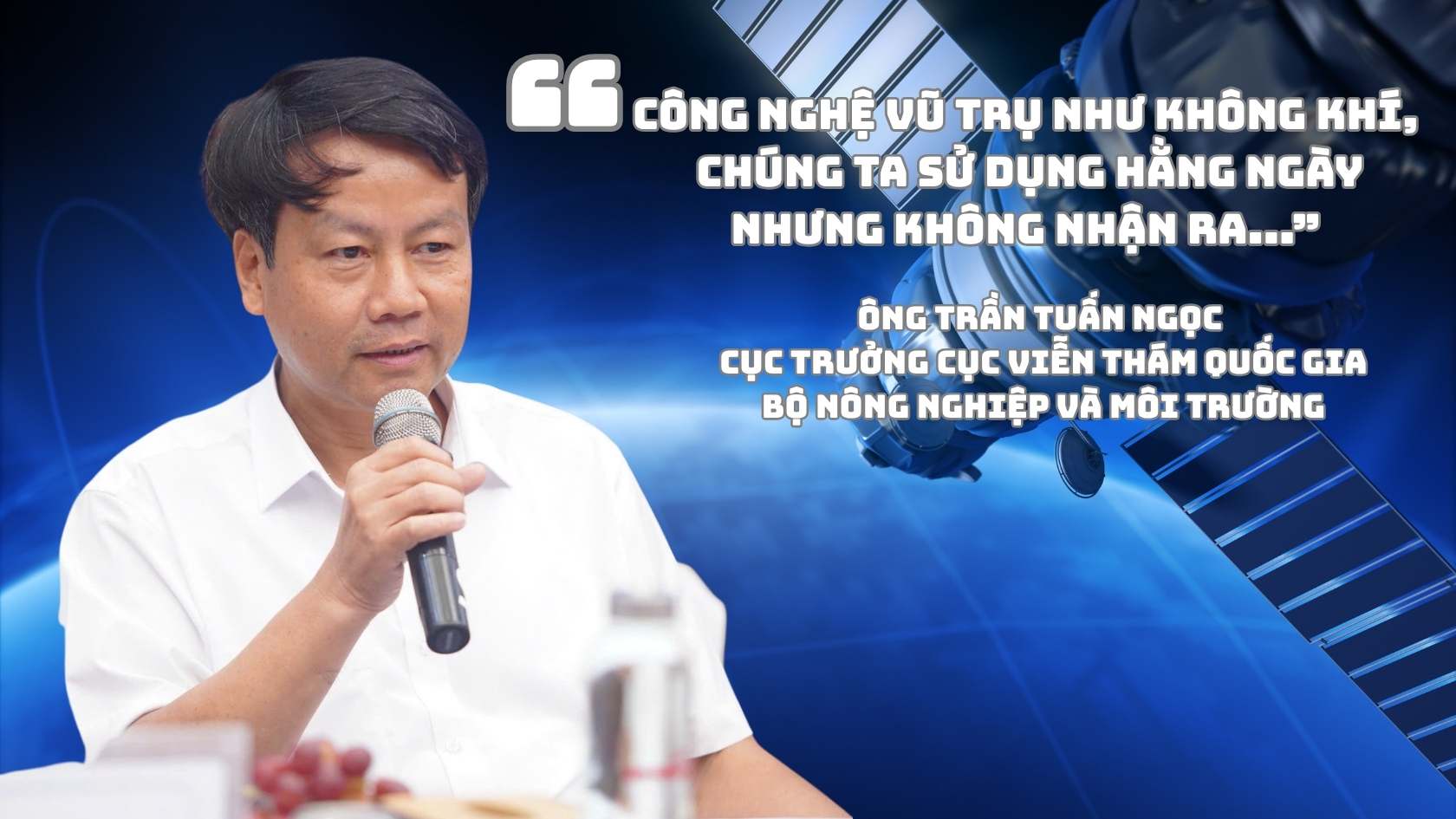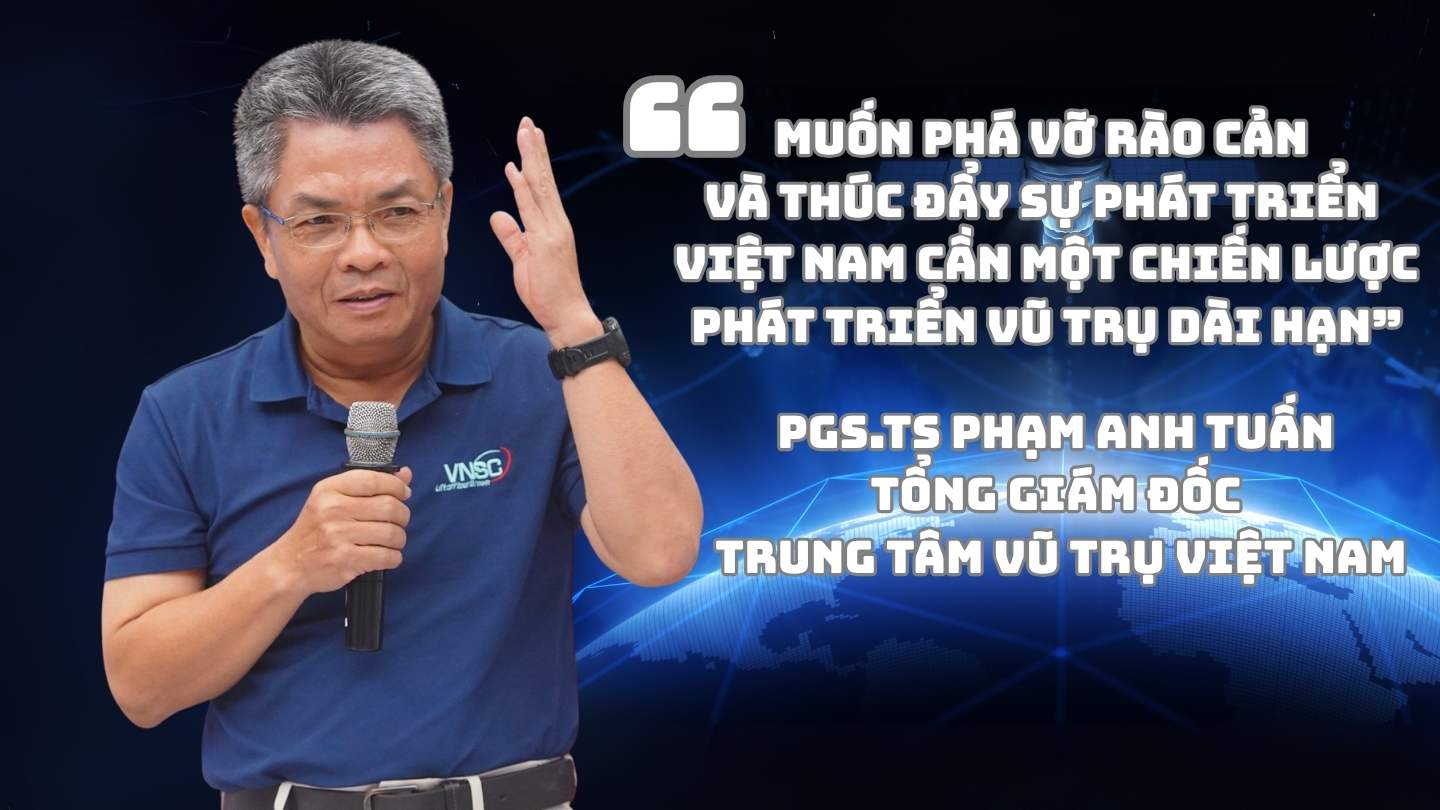When space technology has penetrated into life
Mr. Tran Tuan Ngoc - Director of the National remote sensing agency, Ministry of Agriculture and Environment affirmed that space technology is present in most areas in Vietnam such as telecommunications, positioning to guide to remote sensing to serve resource management, forest monitoring, surveying maps and farming. Space technology is like air, we use it every day but we dont realize it, said Mr. Ngoc.

Not only ministries and branches, many localities such as Hanoi, Ho Chi Minh City, Hai Phong have also applied this technology in practice. The private sector has begun to participate strongly, creating a wave of positive movements from the state to the market.
The driving force for this change comes from major central resolutions, affirming the role of satellite data and space technology in national development. In particular, with the requirement to make the supply chain transparent and trace the origin of agricultural products when exported, remote sensing technology has become an important tool.
However, the current obstacles are not small. The technology infrastructure is still weak, investment is not methodical, there is a lack of coordination between ministries and branches and there is no long-term development strategy. In addition, the operation of satellite data systems requires cross-disciplinary knowledge but there is a serious shortage of high-quality human resources.
The National Telecommunications Administration recommends that the Government should have policies to attract, retain talent, and invest in technology infrastructure in a fundamental way so that the Vietnamese aerospace industry does not miss opportunities.
Building a national space economic strategy
Associate Professor, Dr. Pham Anh Tuan - General Director of the Vietnam Space Center said that in order to break barriers and promote development, Vietnam needs a long-term space development strategy, not only stopping at the 10-year mark but also looking to 2040 - 2050. More importantly, that strategy must come with a stable financial mechanism and clear implementation resources.

According to Mr. Tuan, space activities in Vietnam are still divided into many ministries and branches. The Vietnam Space Commission currently only operates as a consulting steering committee, not having strong coordination authority. We need a real national space agency, like the Philippines model, to operate centrally and effectively, Mr. Tuan suggested.
The universe is not only a strategic science and technology field but is becoming a potential economic sector. The global global global economy is forecast to reach a scale of 1,400 billion USD by 2030, with strong investment from the world's largest technology corporations. Vietnam needs to establish a position in this picture, not only through satellite and telecommunications applications but also through services, supporting industry products and scientific education.
According to Ms. Le Thanh Huong - General Director of Sao Vega Technology Co., Ltd., the universe is a special field, with large investments, high risks but great potential if exploited. In reality, social awareness of space technology is still limited; while state agencies, even the most widely used units, have not actively put ge spatial technology into daily operations.
To make a breakthrough, it is necessary to include ge spatial technology in the national digital transformation program as a "baseline" of the digital system. At the same time, there should be a mechanism to exempt liability for information mis misunderstandings due to old technology to encourage the application of new data. In addition, programs to popularize space knowledge for students and civil servants also need to be widely implemented.











